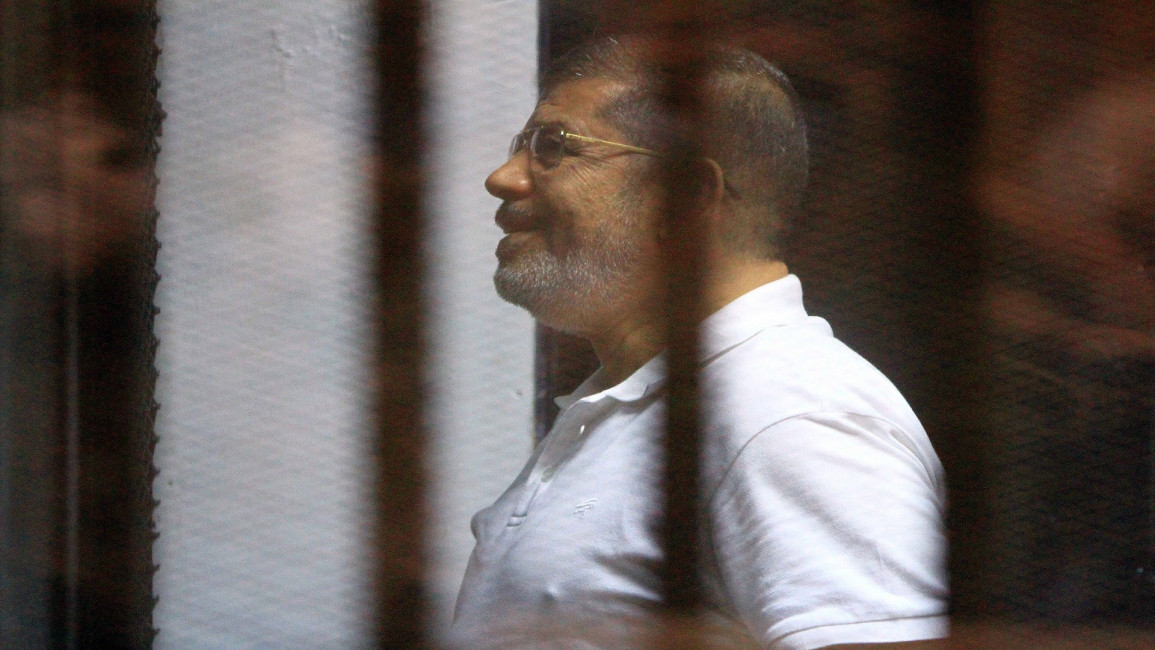Morsi's trial adjourned in Egypt after senior aide's defence
The court will hear arguments in defence of the former president's office manager, Ahmed Abdel Aty, on 9 December. The court ordered the defendants to remain in custody.
On 4 December, Saleh Sanousi presented the defence case for the former president's deputy chief of staff, Asaad al-Sheikha. The lawyer told the court that claims his client incited violence or tortured protesters were basless and not supported by any eyewitness evidence.
| Morsi said: 'I don't want violence, but deal with it.' - Major General Mohammed Ahmed Zaki |
The defence focused on the statement of the commander of the republican guard at the time, Major General Mohammed Ahmed Zaki.
"Protesters threw shoes, rocks and Molotov cocktails at the president's motorcade," the commander had said. "Morsi said: 'I don't want violence, but deal with it.'"
The defence questioned the "nonviolent" nature of the protests, saying the president was coming under attack.
"Do peaceful demonstrations mean throwing shoes, rocks and Molotov cocktails at the president's convoy?" asked the defence counsel.
"The witness confirmed the president asked him to intervene with tanks and armoured vehicles to separate the two sides, and that President Morsi always said he didn't want any blood or casualties."
Blame game
Continuing, the defence lawyer explained that the commander of the republican guard had confirmed al-Sheikha, the deputy chief of staff, ran the operation, and that he ordered the police to bring protesters inside the palace, but they refused.
The defence then blamed the commander of the republican guard for the incident, claiming he was responsible for anyone accused of arresting or illegally detaining protesters.
The lawyer went on to deny allegations of torture. "If there had been any attempts to detain or torture people, the defendants would have persuaded the police to fabricate reports against the detainees or send them to the prosecutor."
He said no eyewitness evidence had been presented to support the claims that Sheikha had tortured anyone - and that simply ordering protestors to be brought inside the palace did not prove he ordered them to be tortured.
The case continues.
This article is an edited translation from our Arabic edition.



